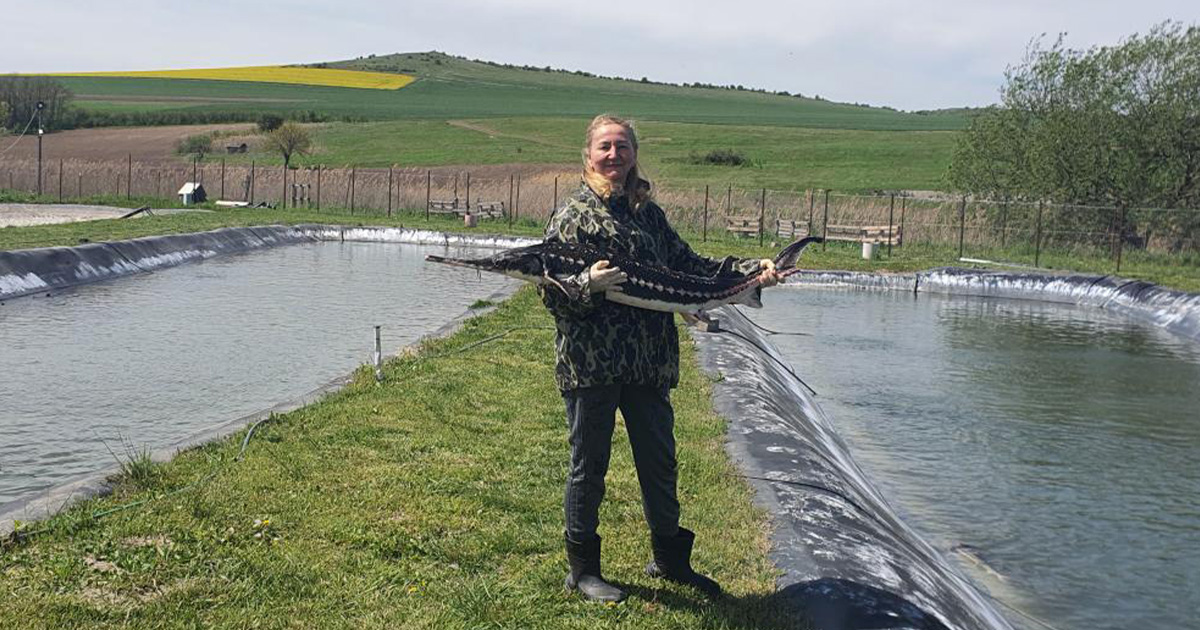In the heart of Romania, entrepreneur Marilena Maereanu has been working on preserving sturgeon populations and developing sustainable aquaculture practices since the 1990s.
With help from the EU, what started as a humble family business trading fish and fish products soon transformed into a lifelong mission to protect the precious sturgeon.
Dedicated to Sturgeon
When Marilena became aware of the alarming decline of sturgeon stocks in the River Danube and the Black Sea, she realized that the future of the trade in caviar and sturgeon lay in sturgeon aquaculture.
In 1998, despite the immense challenges she faced, Marilena established the first private sturgeon farm in Romania and created the now-renowned Danube Caviar brand. This pioneering endeavor provided an alternative source of sturgeon meat and caviar, alleviating the pressure on wild sturgeon.
Driven by her passion for innovation, Marilena followed training courses in Germany to learn the art of artificial sturgeon reproduction. Her dedication paid off. In 2004, her company became the first in Romania to successfully reproduce the wild Beluga sturgeon. These captive-bred sturgeons have since found their way to many other fish farms, contributing to the preservation of the valuable Beluga gene pool.
“You cannot do aquaculture without passion and involvement,” says Marilena—and the results speak for themselves.
With its organic certification and tireless promotion, the Danube Caviar brand is today known for its high quality in Romania and internationally. The brand is among the few Danube Delta sturgeon suppliers delivering to hotels in the area, where many tourists come to taste sturgeon delicacies.
More Efficient Farming Thanks to EU Funding
The recent EU-funded modernization project at Marilena’s Horia allowed her to:
- improve working conditions
- upgrade farm equipment, and
- incorporate sustainable technologies
The improvements include more energy-efficient alternatives, as well as photovoltaic panels that make the farm almost fully energy independent.
EU funds also helped to protect the welfare of the sturgeon population on the farm. An optimally functioning breeding system promotes fish wellbeing. At the same time, it mitigates the risk of technical accidents that could jeopardize one of Romania’s most valuable sturgeon gene pools, which is critical for maintaining genetic diversity.
Thanks to EU funding, Marilena can continue helping the recovery of the wild sturgeon populations of the Danube and the Black Sea, both by supporting stocking and by creating an alternative to fishing for wild sturgeon.



